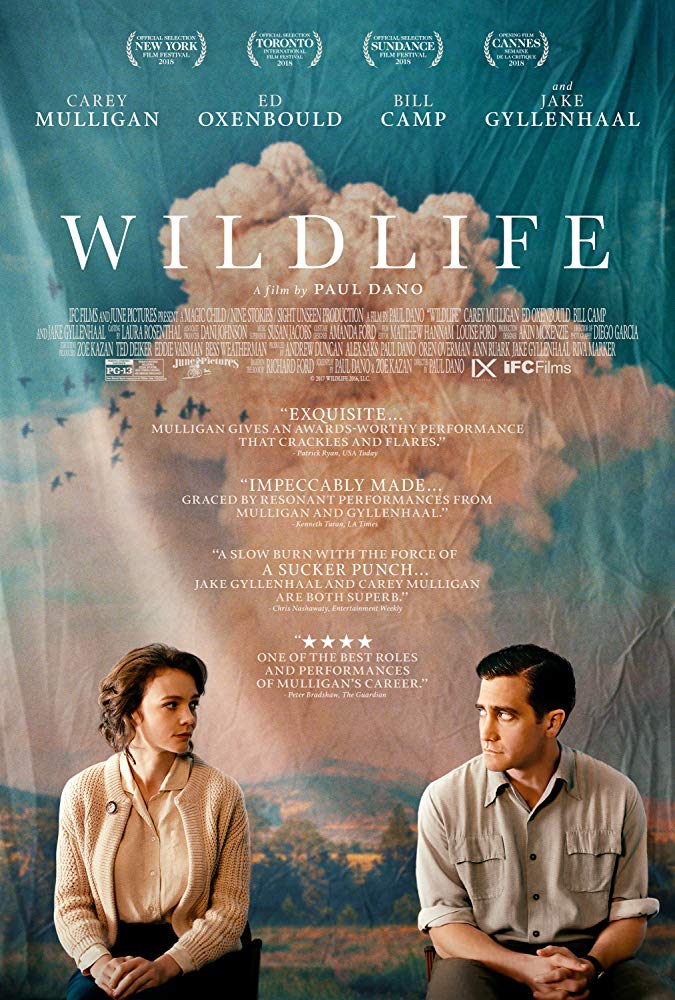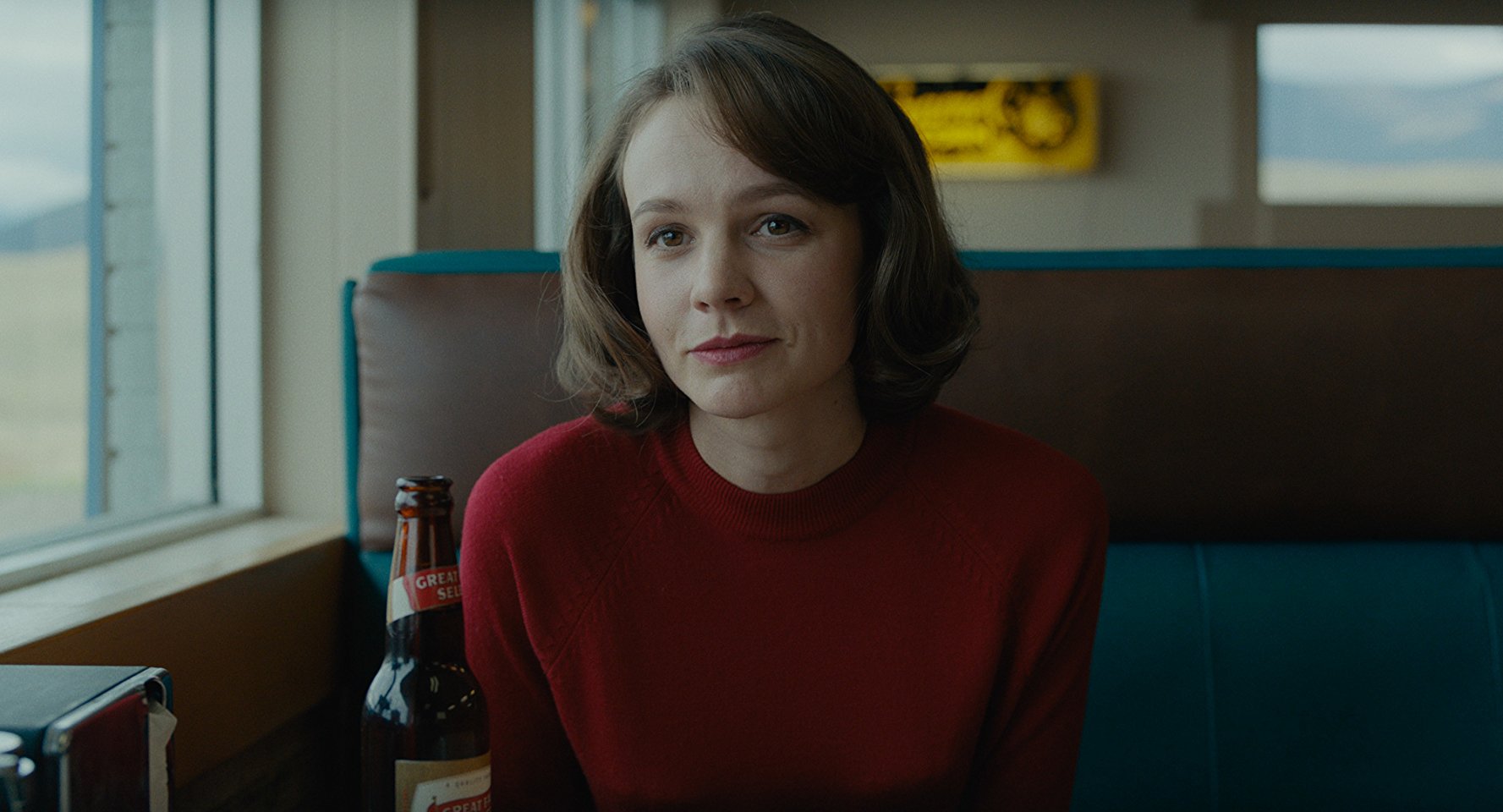by Chris Feil
 Paul Dano’s directorial debut Wildlife is a period domestic drama with a fire in its gut. It’s the kind of piercing portrait of a family that makes you want to marinate in all of its surprising details just as you desperately want to escape its breathlessly realized pain.
Paul Dano’s directorial debut Wildlife is a period domestic drama with a fire in its gut. It’s the kind of piercing portrait of a family that makes you want to marinate in all of its surprising details just as you desperately want to escape its breathlessly realized pain.
Picturing an emotionally desolate suburban America of shitty lawns and ranch style homes, Dano strikes a balance between toughness and compassion, cruelty and honesty. It's as if its family was built on the fault line of two massive tectonic plates and no matter how violent the inevitable eruption that is to come, it might be sadly better that they be ripped apart. For everyone.
The Visit’s Ed Oxenbould stars as Joe, the teenage son caught in the crosshairs of his parents’ disintegrating marriage. Their home is already a silently tumultuous one, with the whisperings of several long-distance relocations and the father Jerry’s pride affecting his ability to obtain and hold onto a job. Joe’s mother Jeanette speaks in doting, bolstering statements about her floundering husband, selling a conviction of the era’s tradition on upholding the male ego in the home. But something snaps in their new Montana life when Jerry leaves the family to fight wildfires for meager pay, with Jeanette reaching a tipping point in her passive role. It’s her mask of performative domesticity that’s burnt to the ground, Joe left helpless to watch and, more crucially, listen.

Carey Mulligan as the fractious Jeanette is simply her finest hour yet, delivering a performance of matter-of-fact, shattered pretenses. Her Jeanette moves decisively, whether feigning enthusiasm for her husband’s “beautiful intentions” or later shedding the identity that had been chosen for her, with an ability to surprise herself and not always positively. Mulligan alternates her frankness with a terror for her rediscovered self and her limited options, particularly as she draws herself closer to a new well-off man played by Bill Camp. Both dryly hilarious and unpredictable, Mulligan creates something quite specific in how Jeanette copes with her circumstance that can’t be denied.
“You’re wasting your life there watching me, sweetheart” she tells her son as he tries to figure her out, at once very right and very wrong. Mulligan maintains something unknowable in Jeanette, but that won’t stop us from studying every pore of this fascinating, deeply rewarding performance.

For those from disillusioned homes, there is something spookily familiar in the relationships Dano molds onscreen, a sense memory experience that the new director’s intuition delivers with appropriate interpersonal confusion and sudden viciousness. Adapted from the Richard Ford novel by Dano and Zoe Kazan, the film is a feat of staging that plays like unnatural memories of a broken home burned in the brain - Jerry’s crouch against the door as things go south, Jeanette’s stoneface as she hangs her laundry, fateful glances through windows and doorways.
And mostly, the film moves soulful through the textures of the parents that Joe cannot fathom. Gyllenhaal gives Jerry a blind rage of contradictory expressiveness and evasion, creating an openness that’s also a trapdoor for Joe’s longing for parental closeness. And though Jeanette reveals the strifes of her marriage to her son, she does so in a language he doesn’t yet understand. Somewhere amid Wildlife’s storm, Dano manages to make a film of grace notes, and something close to forgiveness. And, miraculously, acceptance.
Grade: A